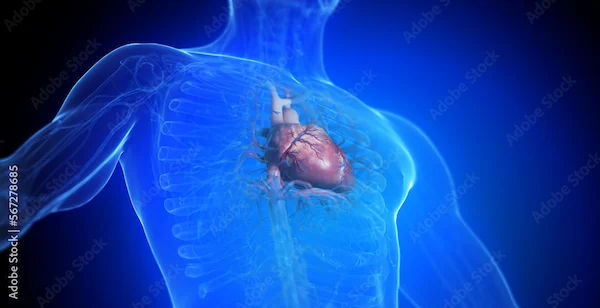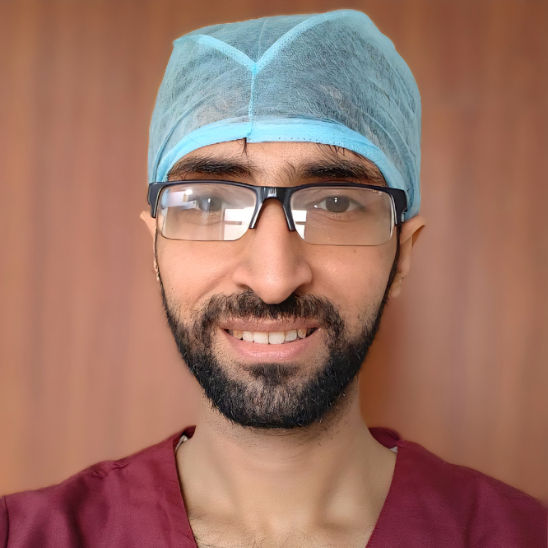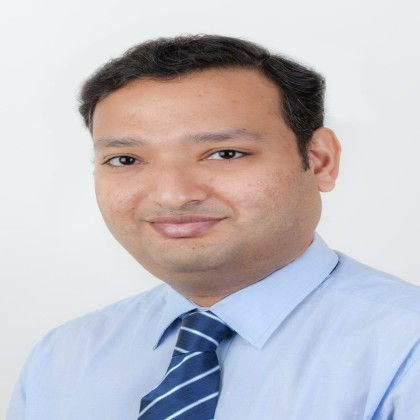Understanding Sudden Cardiac Dysfunction: Causes, Risks, and Prevention
Discover the importance of heart health and learn how to reduce your risk of sudden cardiac dysfunction. This guide explores causes, risk factors, and preventive measures.

Written by Dr.Sonia Bhatt
Last updated on 3rd Jul, 2025

Sudden cardiac dysfunction, also known as sudden cardiac arrest (SCA), is a life-threatening condition where the heart suddenly and unexpectedly stops beating. This disrupts the flow of blood to the brain and other vital organs, leading to loss of consciousness and, if not treated immediately, death. Understanding the causes of sudden cardiac dysfunction is crucial for both prevention and early intervention. In this article, we’ll explore the key causes of sudden cardiac dysfunction and offer actionable advice to help you maintain optimal heart health.
What is Sudden Cardiac Dysfunction?
Sudden cardiac dysfunction, also known as sudden cardiac arrest (SCA), is a critical medical condition where the heart suddenly and unexpectedly stops beating. This occurs due to a malfunction in the heart's electrical system, leading to an irregular or rapid heart rhythm called arrhythmia. As a result, the heart is unable to pump blood effectively, causing a sudden loss of heart function.
It is essential to distinguish between sudden cardiac dysfunction and a heart attack. While a heart attack can trigger sudden cardiac arrest, they are not the same. A heart attack occurs when blood flow to a part of the heart is blocked, causing damage to the heart muscle. In contrast, sudden cardiac arrest is primarily an electrical problem, leading to an abrupt halt in heart function.
In cases of sudden cardiac arrest, immediate medical intervention is crucial. Without prompt and appropriate resuscitation measures, such as cardiopulmonary resuscitation (CPR) and the use of automated external defibrillators (AEDs), death can occur within a few minutes. Early intervention can save lives and improve outcomes.
Get More Information From Top Heart Specialists
Major Causes of Sudden Cardiac Dysfunction
Understanding the underlying causes of sudden cardiac dysfunction is essential for preventing and managing this life-threatening condition. Here are the primary factors contributing to sudden cardiac dysfunction:
1. Arrhythmias
Arrhythmias, or abnormal heart rhythms, are the leading cause of sudden cardiac dysfunction. These can occur in the atria (upper chambers) or the ventricles (lower chambers) of the heart. Ventricular arrhythmias, such as ventricular fibrillation and ventricular tachycardia, are particularly dangerous and can lead to sudden cardiac arrest.
Ventricular Fibrillation (VF): This is a chaotic, irregular heart rhythm that results in the heart quivering rather than pumping effectively.
Ventricular Tachycardia (VT): A rapid heart rhythm originating in the ventricles, which can deteriorate into VF.
2. Coronary Artery Disease (CAD)
Coronary artery disease is a condition where the coronary arteries become narrowed or blocked due to the buildup of cholesterol and other substances (plaques). This reduces blood flow to the heart muscle, increasing the risk of arrhythmias and sudden cardiac arrest.
Atherosclerosis: The buildup of plaques in the arteries, leading to reduced blood flow and potential rupture of the plaques, can trigger a heart attack or arrhythmia.
3. Heart Attack (Myocardial Infarction)
A heart attack occurs when a coronary artery is blocked, preventing oxygen-rich blood from reaching a part of the heart muscle. This can cause damage to the heart tissue and disrupt its electrical activity, leading to arrhythmias and sudden cardiac arrest.
Acute Myocardial Infarction: The immediate aftermath of a heart attack poses a high risk for sudden cardiac arrest due to the vulnerable state of the heart muscle.
4. Cardiomyopathy
Cardiomyopathy refers to diseases of the heart muscle that cause it to become enlarged, thickened, or stiffened. These changes can impair the heart's ability to pump blood and can lead to arrhythmias.
Dilated Cardiomyopathy: The heart becomes enlarged and cannot pump blood efficiently.
Hypertrophic Cardiomyopathy: The heart muscle thickens abnormally, often affecting the ventricles.
Restrictive Cardiomyopathy: The heart muscle becomes rigid and less elastic, impeding proper blood flow.
5. Heart Valve Disease
Heart valve disease involves malfunctions of one or more of the heart valves, which control blood flow through the heart. Conditions such as stenosis (narrowing) or regurgitation (leakage) can lead to heart failure and arrhythmias.
Aortic Stenosis: Narrowing of the aortic valve, reducing blood flow from the heart.
Mitral Valve Prolapse: The mitral valve does not close properly, causing blood to leak backwards into the left atrium.
6. Congenital Heart Defects
Congenital heart defects are structural abnormalities present at birth that can increase the risk of sudden cardiac arrest. These defects can affect the heart's ability to pump blood effectively or lead to arrhythmias.
Septal Defects: Holes in the heart's septum, which divides the heart's chambers.
Tetralogy of Fallot: A combination of four heart defects that affect normal blood flow.
7. Long QT Syndrome
Long QT syndrome is a genetic disorder affecting the heart's electrical system, causing prolonged QT intervals on an ECG. This increases the risk of life-threatening arrhythmias and sudden cardiac arrest.
Congenital Long QT Syndrome: An inherited condition that affects the heart's repolarisation phase.
Acquired Long QT Syndrome: This can be caused by certain medications, electrolyte imbalances, or other medical conditions.
8. Electrolyte Imbalances
Electrolytes such as potassium, magnesium, calcium, and sodium are essential for maintaining the heart's electrical activity. Imbalances in these electrolytes can disrupt the heart's rhythm and increase the risk of sudden cardiac dysfunction.
Hypokalemia: Low potassium levels can lead to dangerous arrhythmias.
Hyperkalemia: High potassium levels can also cause severe arrhythmias.
Hypocalcemia: Low calcium levels can affect the heart's contraction and rhythm.
9. Recreational Drug Use
The use of recreational drugs, such as cocaine and amphetamines, can have severe effects on the heart, including causing arrhythmias, increasing heart rate, and leading to sudden cardiac dysfunction.
Cocaine: It can cause coronary artery spasms, leading to a heart attack or arrhythmia.
Amphetamines: These can increase heart rate and blood pressure, leading to arrhythmias and sudden cardiac arrest.
10. Severe Physical Stress
Extreme physical stress, such as intense exercise or severe illness, can trigger sudden cardiac dysfunction, especially in individuals with underlying heart conditions. The body's response to stress can include increased heart rate, blood pressure, and the release of stress hormones, which can all contribute to arrhythmias.
Actionable Advice for Patients
While sudden cardiac dysfunction can be alarming, there are several steps patients can take to reduce their risk and improve heart health. Here are some actionable tips:
1. Regular Check-Ups
Routine medical check-ups and heart health screenings are essential for early detection of risk factors such as high blood pressure, high cholesterol, and diabetes.
2. Healthy Lifestyle Choices
Diet: Adopt a heart-healthy diet rich in fruits, vegetables, whole grains, lean proteins, and healthy fats. Reduce intake of saturated fats, trans fats, and excessive salt and sugar.
Exercise: Engage in regular physical activity, such as walking, swimming, or cycling, to improve cardiovascular health. Aim for at least 150 minutes of moderate-intensity exercise per week.
Smoking Cessation: Quit smoking and avoid exposure to secondhand smoke to reduce the risk of coronary artery disease and other heart-related conditions.
3. Medications
Take medications as prescribed by your healthcare provider to manage conditions such as high blood pressure, high cholesterol, and diabetes. Medications can help prevent the progression of heart disease and reduce the risk of sudden cardiac dysfunction.
4. Know the Signs
Be aware of the warning signs of a heart attack and sudden cardiac arrest, such as chest pain, shortness of breath, dizziness, and palpitations. Seek immediate medical attention if you experience these symptoms.
5. Emergency Preparedness
Learn CPR (cardiopulmonary resuscitation) and familiarise yourself with the use of automated external defibrillators (AEDs). Quick action can save lives in the event of sudden cardiac arrest.
Conclusion
Sudden cardiac dysfunction is a serious medical emergency with various causes, including arrhythmias, coronary artery disease, and cardiomyopathy. By understanding these risk factors and adopting heart-healthy habits, patients can take proactive steps to reduce their risk and improve their overall heart health. Regular medical check-ups, a balanced diet, regular exercise, and medication adherence are key to preventing sudden cardiac arrest and leading a heart-healthy life.
Consult Top Cardiologist
Get More Information From Top Heart Specialists

Dr. Sumanta Chatterjee
Cardiologist
12 Years • MBBS,MD General Medicine,DM Cardiology
Kolkata
HealthYou Speciality Clinic & Diagnostics., Kolkata
(25+ Patients)

Dr. Amit. A. Bharadiya
Cardiologist
12 Years • MBBS, MD General Medicine, DNB Cardiology, FSCAI
Maharashtra
Surabhi Hospital, Maharashtra, Maharashtra
Dr. Dixit Garg
Cardiologist
10 Years • MBBS , DNB (General medicine) , DNB (cardiology)
Gurugram
Smiles & Hearts, Gurugram

Dr. Pinaki Nath
Cardiologist
8 Years • MBBS, MD General Medicine, DM Cardiology
Barasat
Diab-Eat-Ease, Barasat

Dr. Mangesh Danej
Cardiologist
8 Years • MBBS, MD (General Medicine), DNB (Cardiology)
Pune
Dr Danej clinic, Pune
(375+ Patients)
Consult Top Cardiologist

Dr. Sumanta Chatterjee
Cardiologist
12 Years • MBBS,MD General Medicine,DM Cardiology
Kolkata
HealthYou Speciality Clinic & Diagnostics., Kolkata
(25+ Patients)

Dr. Amit. A. Bharadiya
Cardiologist
12 Years • MBBS, MD General Medicine, DNB Cardiology, FSCAI
Maharashtra
Surabhi Hospital, Maharashtra, Maharashtra
Dr. Dixit Garg
Cardiologist
10 Years • MBBS , DNB (General medicine) , DNB (cardiology)
Gurugram
Smiles & Hearts, Gurugram

Dr. Pinaki Nath
Cardiologist
8 Years • MBBS, MD General Medicine, DM Cardiology
Barasat
Diab-Eat-Ease, Barasat

Dr. Mangesh Danej
Cardiologist
8 Years • MBBS, MD (General Medicine), DNB (Cardiology)
Pune
Dr Danej clinic, Pune
(375+ Patients)


